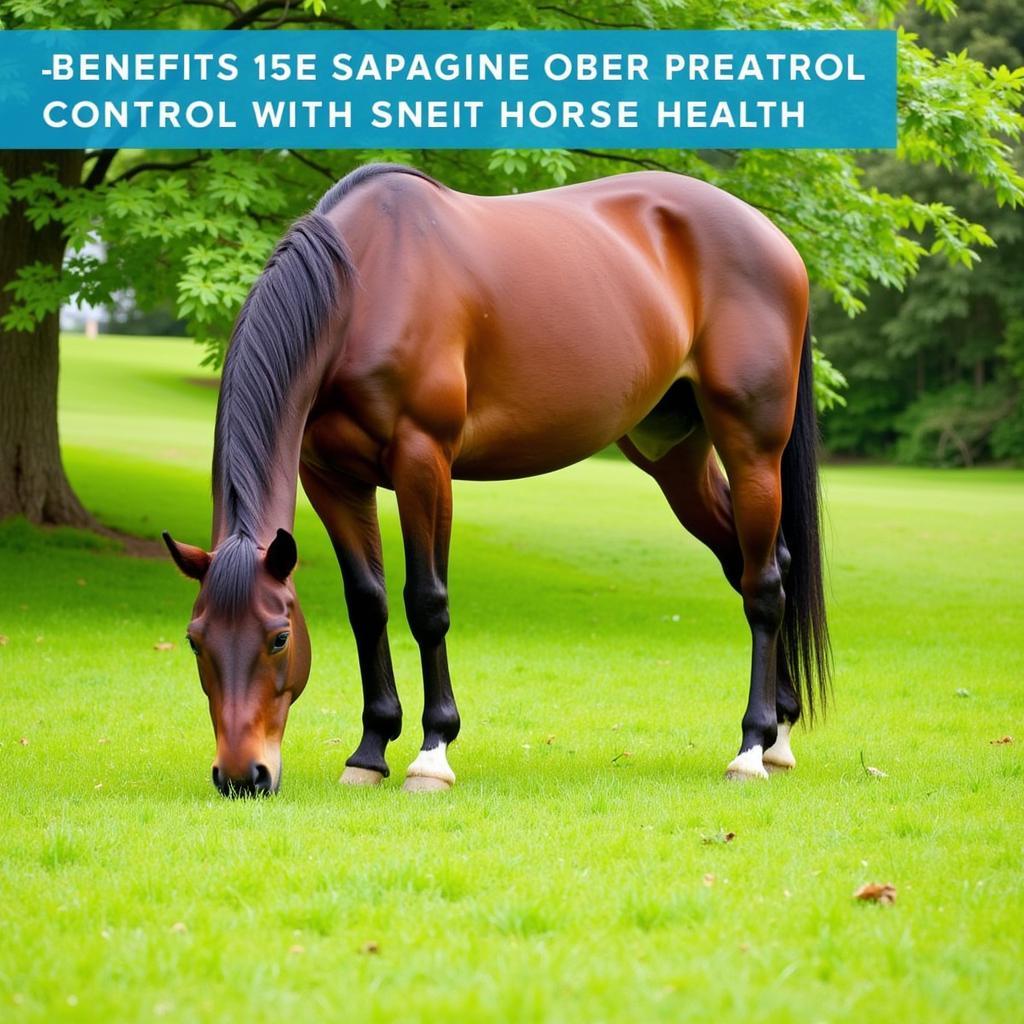Pelleted Wormer For Horses offers a convenient and effective way to manage internal parasites. Understanding the different types, benefits, and best practices for using these wormers is crucial for maintaining your horse’s health. This guide will provide you with all the information you need to make informed decisions about your horse’s parasite control program.
Understanding the Need for Pelleted Wormer
Horses are susceptible to a variety of internal parasites, including roundworms, tapeworms, bots, and lungworms. These parasites can cause a range of health problems, from mild discomfort to serious illness and even death. Regular deworming with a pelleted wormer is a vital part of preventative healthcare for horses.
Types of Pelleted Wormers for Horses
Several types of pelleted wormers are available, each targeting different types of parasites. Some common active ingredients include ivermectin, moxidectin, and pyrantel pamoate. Choosing the right wormer depends on your horse’s individual needs and the prevalent parasites in your area. Consulting with your veterinarian is essential for developing a targeted deworming program.
Benefits of Pelleted Wormers
Pelleted wormers offer several advantages over other forms of deworming medication. Their palatable form makes them easier to administer, especially to picky eaters. They can be easily mixed with feed, ensuring accurate dosing. Furthermore, pelleted wormers often have a longer shelf life than liquid formulations.
Administering Pelleted Wormer for Horses
Proper administration is crucial for the effectiveness of any wormer. Always follow the manufacturer’s instructions for dosage based on your horse’s weight. Ensure your horse consumes the entire dose by mixing the pellets thoroughly with a small amount of feed. It’s also important to keep records of deworming dates and the type of wormer used.
How to Calculate the Correct Dosage
Calculating the correct dosage is vital to prevent underdosing, which can lead to parasite resistance, or overdosing, which can be harmful to your horse. Consult the product label or your veterinarian for specific instructions. Typically, the dosage is based on the horse’s weight, and you’ll need an accurate weight measurement or estimate to determine the correct amount of pelleted wormer to administer.
strongid daily wormer for horses
Developing a Deworming Schedule
A strategic deworming schedule is essential for effective parasite control. Traditional rotational deworming programs are being replaced by more targeted approaches based on fecal egg counts and risk assessment. Your veterinarian can help you determine the best deworming strategy for your horse, considering factors such as age, housing, and exposure to other horses.
Why Regular Deworming is Important
Regular deworming minimizes the risk of parasite infestations, protecting your horse’s health and performance. It also helps prevent the spread of parasites to other horses in the herd. A consistent deworming program is a key component of responsible horse ownership.
 Healthy horse grazing in a green pasture
Healthy horse grazing in a green pasture
Commonly Asked Questions about Pelleted Wormer for Horses
What are the signs of worms in horses? Signs can vary depending on the type of parasite and the severity of the infestation, but can include weight loss, dull coat, poor performance, and colic.
How often should I deworm my horse? The frequency of deworming depends on various factors and should be determined in consultation with your veterinarian.
Can I give my horse pelleted wormer if it is pregnant or lactating? Always consult your veterinarian before administering any medication to a pregnant or lactating mare.
What are the potential side effects of pelleted wormers? Side effects are rare but can include mild digestive upset.
Where can I purchase pelleted wormer for horses? Pelleted wormers are available from your veterinarian, feed stores, and online retailers.
Conclusion
Pelleted wormer for horses is a valuable tool for managing internal parasites and ensuring your horse’s well-being. By understanding the different types of wormers available, administering them correctly, and working with your veterinarian to develop a tailored deworming schedule, you can keep your horse healthy and parasite-free.
For assistance, contact us 24/7 at Phone: 0772127271, Email: [email protected], or visit us at QGM2+WX2, Vị Trung, Vị Thuỷ, Hậu Giang, Việt Nam.